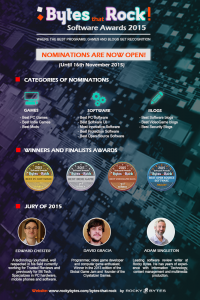From the post:
The EPIC App Challenge is an Intelligence-Community-focused challenge for developers directed at one or more hard problems the IC is facing today. Participating in the App Challenge is a great way to show off your school or company’s developers and technical talent to 3 esteemed judges and over 1,000 attendees at the 2018 Intelligence and National Security Summit. Similar to a hackathon, teams will be competing against each other in a 10-day sprint to create the best solution to the problem involved. Instead of running the challenge on-site, teams will work from their home, office, or school to create their solutions and then present them on the kickoff day of the Summit, September 4.
There will be cash prizes given to the first, second, and third place teams, which will be announced following the keynote luncheon on the opening day of the conference.
- Grand Prize: $3,000
- Second Place: $2,000
- Third Place: $1,000
Phase 1: August 24 – September 4
- We will host a virtual kick off at 11am on Friday, August 24 to provide all teams with the problem statement, as well as answer any questions you may have. We will also provide contact information if you have any questions along the way. You will have until 8:00am on Tuesday, September 4 to work on your project. Your solution can be presented in PowerPoint or Keynote slides, a Word document, a Prezi, video, etc.
Phase 2: September 4
- You will arrive by 8:15am to present your solution to the judges. We will kick off the event with opening remarks, and then each team will present their solution. Judging will be done science fair style. Judges will give each team approximately 15 minutes to present their solution. Judging will conclude at 11:00am. Following the round of judging, the winners will be selected and recognized on stage following the opening keynote luncheon, which begins at 11:45am.
- Teams are allowed to leave their solutions set up the rest of the day for the 1,000+ INSS attendees to come by and see your solution.
Problem Set
The App Challenge problem will focus on anticipating events based on open source data sets that may include data for natural disasters, social unrest, cyber attacks, or disease patterns. Participants will be judged on their ability to develop anticipatory intelligence solutions based on the final judging criteria.
Utilize a publicly available open data set (i.e., CIA World Factbook, Data.gov, more) to provide indictors and warning (i.e., anticipatory intelligence, predictive analytics, pattern recognition) for an ongoing or upcoming global event that would be relevant to National Security Interests of the United States. Your solution will be judged on two prongs: First, on the problem sets impact to national security; and, second, the technical solution and how well the proposed solution will meet that need. Further details to be provided during the kickoff on Aug. 24.
Examples of data sets and technology to support the development of your solution:
- Data sets: CIA World Factbook, Data.gov, US Census, Github, Socrata, DIUx, more
- Indictors and warning: pattern recognition, machine learning, anticipatory intelligence, predictive analytics, etc.
- Potential events with national security implications that could be of focus (this is not inclusive):
- Cyber attacks
- Natural disasters (i.e., fires, earthquakes, Tsunami)
- Biological events (i.e., disease outbreak patterns)
Team Entry
- Minimum of 1 person with a maximum of 5 team members
- Participants in the EPIC App Challenge will be provided complimentary registration to the conference, as well as a complimentary ticket to the opening keynote luncheon
- Teams must be able to attend the morning of September 4 to present your solution.
- Cost is $50 per team to participate.
…
If you want to gather intelligence on the intelligence community, here’s a cheap ($50) way to start. Not only will you discover what the intelligence community (IC) considers to be hard problems, you may come to the attention (assuming that’s desired) of members of the IC. They are further sources of what interests the IC.
Anyone up for a team using merging based on subject identity? Ping me.


